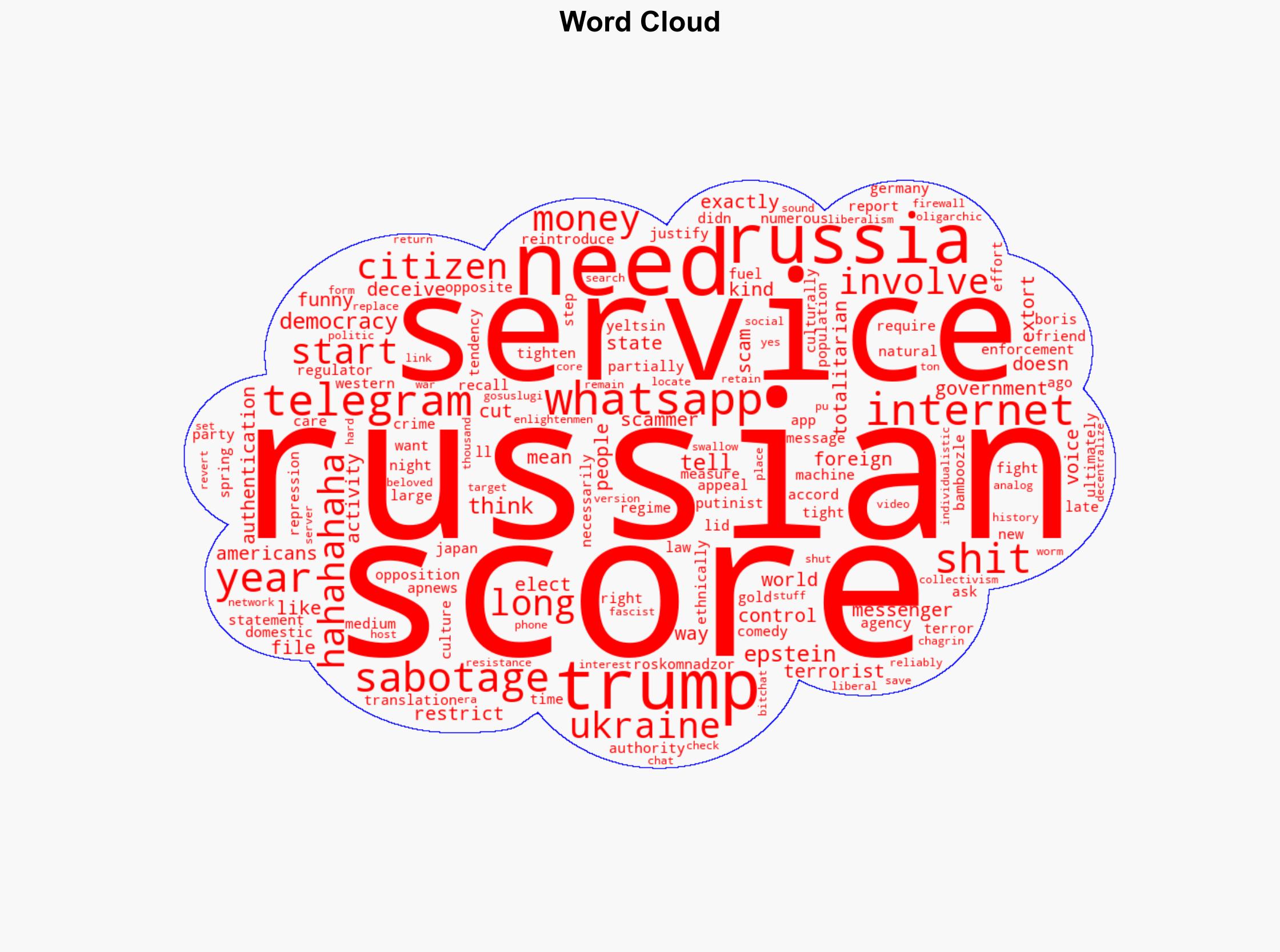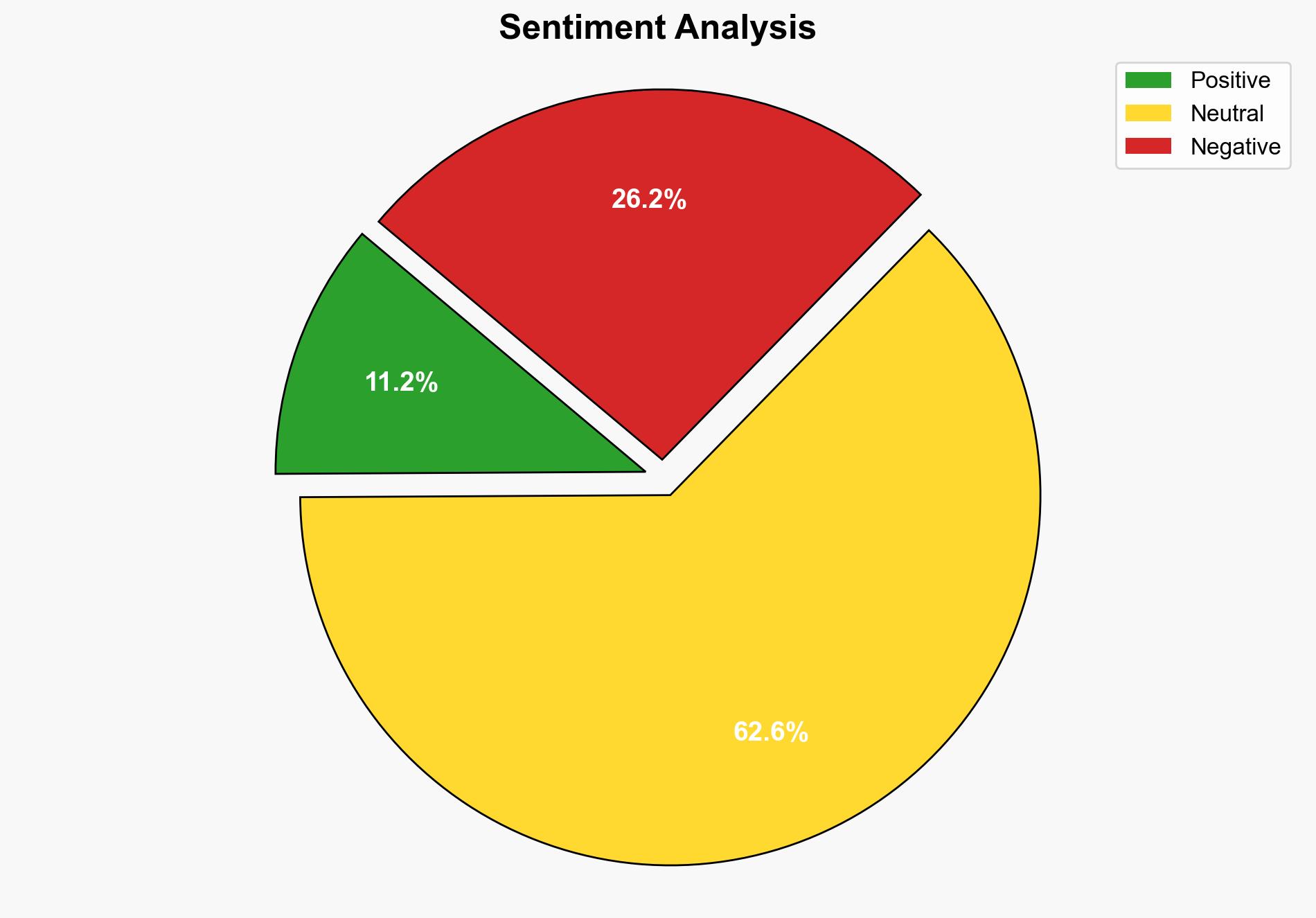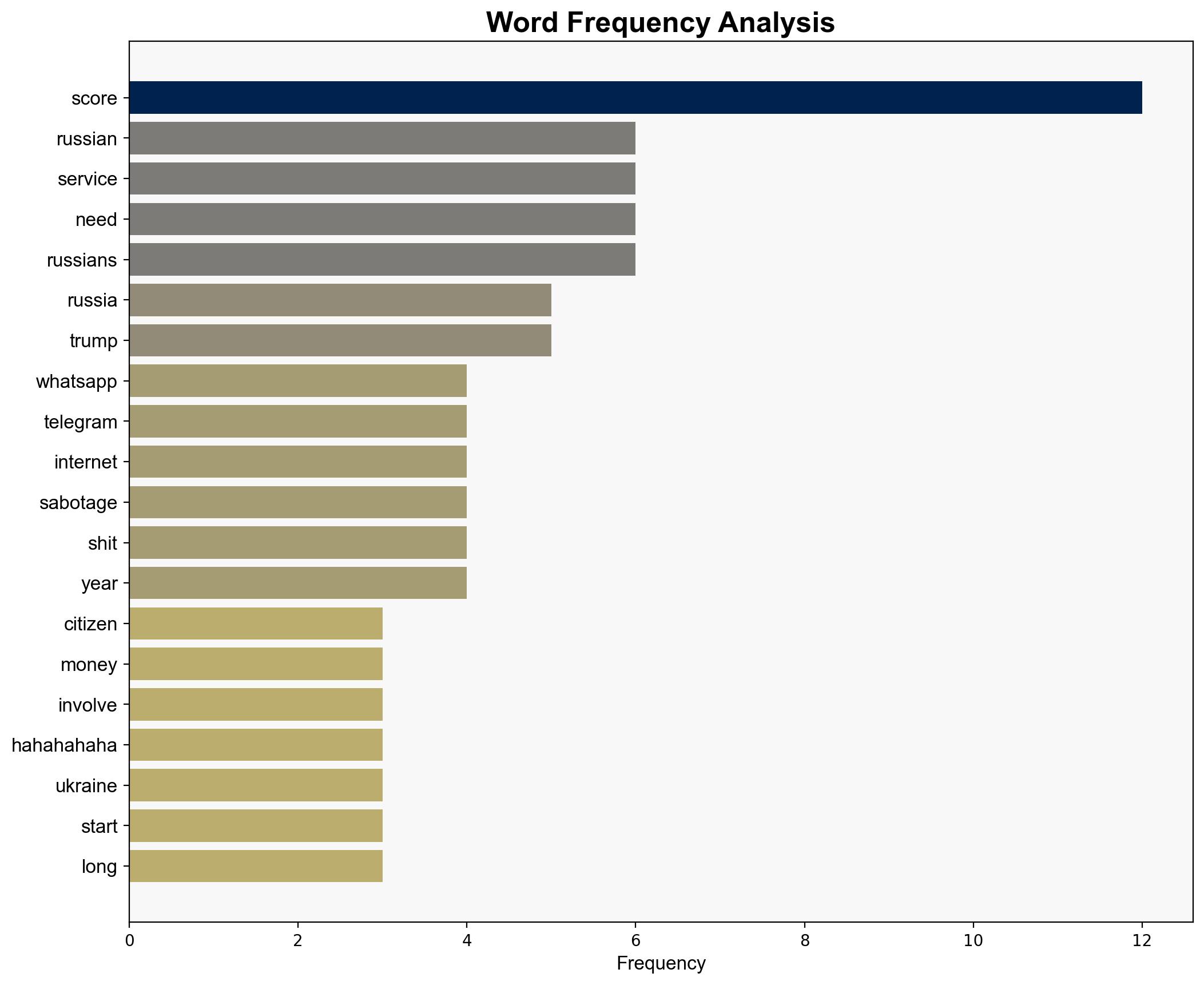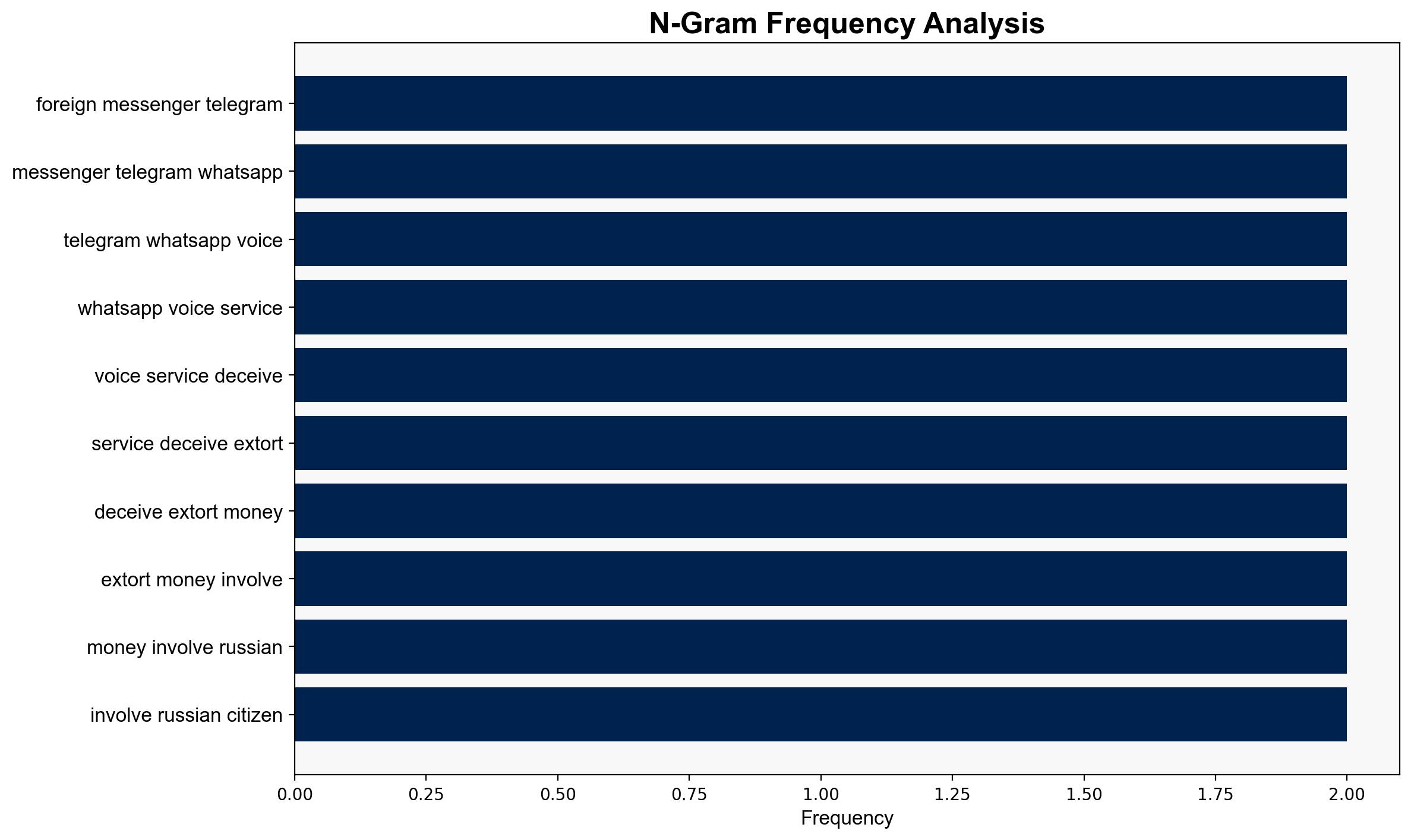Russia Restricts Calls Via WhatsApp and Telegram – Slashdot.org
Published on: 2025-08-14
Intelligence Report: Russia Restricts Calls Via WhatsApp and Telegram – Slashdot.org
1. BLUF (Bottom Line Up Front)
The most supported hypothesis is that Russia’s restrictions on WhatsApp and Telegram are primarily aimed at enhancing state control over digital communications under the guise of national security. This aligns with broader efforts to centralize internet governance and reduce foreign influence. Confidence level: Moderate. Recommended action: Monitor developments in Russian digital policy and prepare for potential impacts on global tech companies operating in the region.
2. Competing Hypotheses
1. **Hypothesis A**: The restrictions are a genuine effort to combat crime and terrorism, as claimed by Russian authorities. This involves preventing the use of these platforms for illicit activities.
2. **Hypothesis B**: The restrictions are primarily a strategic move to tighten governmental control over the internet, limiting foreign influence and suppressing dissent within Russia.
Using ACH 2.0, Hypothesis B is better supported due to historical patterns of Russian internet regulation and the broader context of increasing state control over digital spaces. The justification of crime prevention appears secondary to the strategic objective of control.
3. Key Assumptions and Red Flags
– **Assumptions**: Hypothesis A assumes that the primary motivation is security-driven, while Hypothesis B assumes a political motive. Both rely on the assumption that the state has the capability to effectively enforce these restrictions.
– **Red Flags**: The lack of specific evidence linking WhatsApp and Telegram to significant criminal activities raises questions about the stated rationale. The narrative of foreign influence as a threat may be exaggerated to justify domestic control measures.
4. Implications and Strategic Risks
– **Geopolitical**: Increased tensions with Western countries over digital sovereignty and potential retaliatory measures against Russian tech policies.
– **Cybersecurity**: Potential for increased cyber operations targeting Russian infrastructure as a form of resistance or protest.
– **Economic**: Impact on foreign tech companies operating in Russia, potentially leading to reduced investment and innovation.
– **Psychological**: Heightened public dissent and underground movements as citizens seek alternative communication methods.
5. Recommendations and Outlook
- Monitor Russian legislative developments related to internet governance and digital rights.
- Engage with international tech companies to assess the impact of these restrictions and explore collaborative responses.
- Scenario Projections:
- Best Case: Russia clarifies its policies, allowing for a balanced approach that addresses security concerns without stifling digital freedoms.
- Worst Case: Escalation of digital isolationism, leading to significant economic and diplomatic fallout.
- Most Likely: Continued incremental tightening of internet controls with sporadic international pushback.
6. Key Individuals and Entities
– Vladimir Putin
– Roskomnadzor (Russian Internet Regulator)
7. Thematic Tags
national security threats, cybersecurity, counter-terrorism, regional focus




